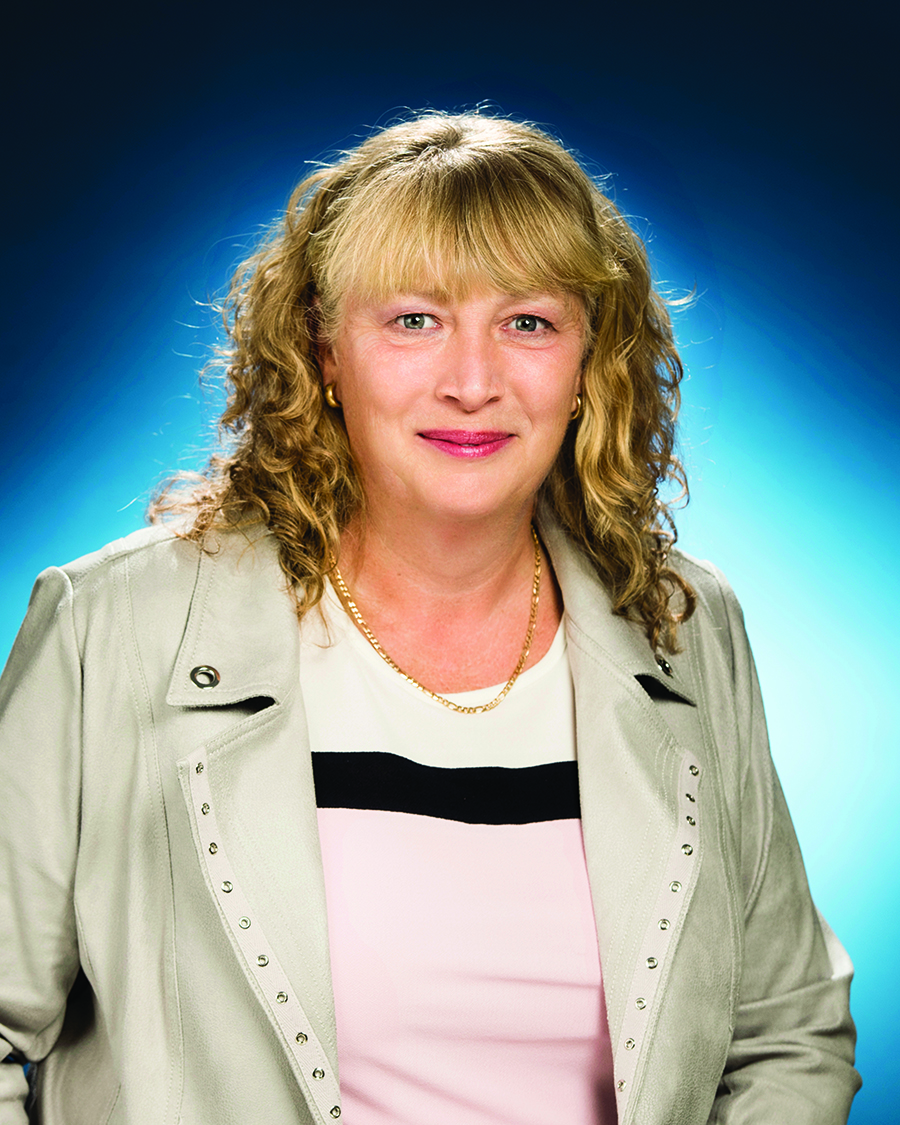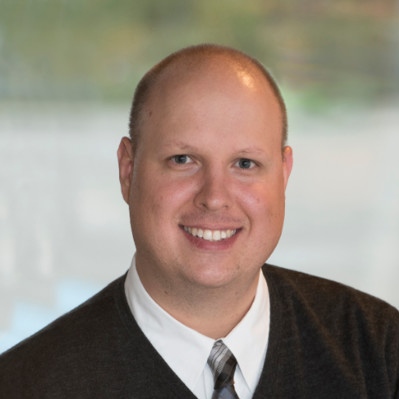An Interview with Adrienne Jugley
An Interview with Adrienne Jugley
By: Rob Kirsic
December 2024

Her final nine years of her career, Adrienne served as the Commissioner of Community Services where she was committed to serving the most vulnerable people in the Niagara community from infant to senior. In this role, Adrienne envisioned Niagara Region as a strong community where individuals are supported to maximize their potential, achieve their goals, and enhance their quality of life and social well-being. She truly believed in this philosophy and was a key contributor to numerous community initiatives and Regional developments. Her unparalleled work ethic - first one to the office, last one to leave, her ability to always make time to connect with staff at all levels and knew everyone by name, and how she empowered staff to always want to do better for the community are just a few of her incredible gifts that make her a true human services champion.
She is also one of the recipients of the 2024 OMSSA Champion of Human Services Award. OMSSA sat down with Adrienne Jugley for an interview to discuss her work and career and thoughts on human services in Ontario.
This interview has been edited and condensed.
OMSSA: Human services delivery between more than one level of government brings challenges and opportunities, especially as governments and priorities change over time. In your experience, what should human services staff know and think about when it comes to the relationship between the province and municipalities as it relates to the delivery of human services?
Adrienne Jugley (AJ): It’s an interesting question. In my observation, with this provincial government, there is a growing tension between municipalities and the province. It’s important for the human services sector to be aware of the broader relationship between these two levels of government and the strengths and weaknesses that exist in this relationship.
You see this tension in other areas such as land use planning, and capital infrastructure investment, not just human services. Knowing the relationship context is important. And it is important to understand that senior provincial staff, who are directed by provincial cabinet, are very much impacted by these tensions and the expectations of the provincial leadership.
It’s also a good reminder that municipalities are the creation of the province. Sometimes this is forgotten by the public and local leaders, and there are times when municipalities have to be prepared for provincial policy changes that impact them and are not of their creation.

This is tension in our mandated role, we try to avoid creating adversarial relations between the levels of government, but it can happen. We see that in the areas of poverty, housing, and homelessness. What is that balance between informing and advocating? I have found that what can work, is to look for common objectives and outcomes, that are sought by all of us, regardless of ideology and party politics.
For example, it is in everyone’s advantage – big business right down to the local residents – to reduce poverty in our communities, reduce homelessness, and see people housed and employed, and see those with disabilities be properly supported to live healthy and fulfilling lives.
The tension in ideologies is in how you do that and understand the causes of the wicked problems our society is facing. One of the ways to navigate it is through the use of data. The human services sector can do those it services to use data to evaluate outcomes, measure cost effectiveness, and the impact of objectives that are shared regardless of ideology. This provincial government seems to value data, seeing it as more ‘objective’ and trustworthy. That has been one of the tools that helps us bridge the ideological differences often found in our communities and political leadership and speak to their objectives.
Advocacy, without data, can sometimes be an exercise as to who can be the loudest, and the most compassionate. I do not believe that in the role of service manager that this can be a place for human services leaders. Our job is to inform and use information to guide decisions and set priorities. Information is power rather than simply the volume of our message. I think that the human services sector needs to continue to work on finding consistency in our we collect our information and the policy directions we want to recommend. Right now, I don’t find this as consistent as it should be and we can do a better job telling our story with data and presenting the most critical facts, that leave the door open to more dialogue. But, we also have to be prepared to be wrong or not yet have all the answers and this too must be acknowledged in our work with the province. I try to go where we have strengths in our information and where we can have mutual success.
As Human Service leaders we work at the pleasure of government, and when there is a change in government, that’s the choice of Ontario’s residents to make that change. When this happens, I need to hear what this government is looking for, and what is important, because they represent the public that elected them. We all want to see less human suffering and more human success stories, and we need to move through political ideology to find what we have in common.
OMSSA: Earlier in your career you were involved with mental health and addictions work, can you talk about how you tackle these varied issues with limited resources? And, on the horizon, over the next three to five years, where do you see progression being made to deal with these issues?
AJ: It was very helpful experience. I worked in health, in hospital and in the community, working under LHINs and district health councils, so I had a sense of how healthcare and its governance works.

The campaign to reduce stigma has come a long way but, at the same time, we need to decide how to focus limited service resources to have the greatest impact both in helping those with the greatest needs and providing prevention and early intervention services in the most appropriate and accessible settings.
The public’s current concern is there is not sufficient resources for the needs that are out there, as they now include conditions that are milder and never would have been considered for service years ago. It helps to describe what we’re talking about when we speak broadly of mental health care (all the conditions and treatments), and what resources are there, in order to help the public and political and local community leadership understand the differences between treatment and crisis response. One of my current frustrations is the inclination to assume that we need more points of access, system navigators and crisis services without ensuring that there is actually sufficient treatment available after someone gets through the door. Frankly, an adequate treatment system would need far less crisis services or system navigators than the system we have today.
In my role as Commissioner, I tried to be the bridge between mental health and human services in our local community, to bring them together. I was struck in various meetings of a sense of community separation and inability to access provincial policy makers and funders. Human service providers spoke often of the inability to access health services for their clients and not being able to make the connection with service system leadership. The advantage I had in working in the other sector is I had the connections, including in hospitals and community-based mental health and addition providers. There wasn’t a miracle solution, but it helped that I could speak the same language and talk about the issues in the same way. These relationships helped us consider new service approaches and bringing together our strengths and tackling issues of mutual concern.
This isn’t unique to me, but for a number of OMSSA Members, through partnerships, we can look at creating services that leverage our strengths and reimagine what service could look like. For example, mental health treatment that includes housing, a substance use program connected to shelter services, mental health assessments as part of Ontario Works programming.
By creating a common understanding of our issues, and speaking the same language of need and service, we can articulate what the conditions are that we wish to address (rather than speaking in generalities) and identify our greatest and common challenges. Mental health wellness or distress and mental illness is not a single condition. There’s a huge range of conditions and severities. If you can’t quantify that and describe it, the health sector will look at you and brush you off saying they can’t take on more because they are overburdened. The power of words is an important thing. Are we actually speaking the same language with a common understanding of the problem we want to solve? Partnerships and relationships lead to common outcomes, goal and problem definition, and respect. We have developed a number of proposals from this perspective and I believe that our working relationships have improved as a result.
OMSSA: One of the challenges OMSSA Members have is engaging their local Indigenous communities. Can you talk about how you were able to successfully work with local Indigenous partners, and if there are any lessons learned from this experience?
AJ: A history of directing services, imposing expectations that are not informed by the indigenous community and a lack of cultural awareness or inclusion have created significant tension and hesitancy the local indigenous service sector when approached by service managers. I believe that we have to avoid, wherever possible, asking the Indigenous community to deliver non-Indigenous programming in their Indigenous community, thinking that this is some form of ‘inclusion.’ Rather, through collaborative problem definition, and mutual exploration of what Indigenous-led services could be, we have a greater opportunity to have an engaged indigenous community and successful service. I believe that services should be Indigenous programming, Indigenous-led, and not just one of our programs repackaged and run by an Indigenous person or organization. My role in some of our local efforts was about giving permission to take risks and do things differently, particularly when the service delivery model was going look quite different than those that we might do in the non-indigenous community.
OMSSA: Let me ask you about that thought of risk, because this is an interesting thought, how do you let staff take risks?

As we brainstorm ideas, we try to avoid the word but in our responses and try, where you can, to put in and and allow people to explore the art of the possible. We manage risk by talking through someone’s idea and hearing their thinking. I tell myself to listen and let them, in their own way, identify risks, but I also highlight possible risks they haven’t thought of.
As a leader, if you’re too tightly involved, I think, you actually prevent people from developing their own risk management skills. You need people to work with you to identify risk and how to mitigate them. There are fewer mistakes made when that happens. Allow them to lead and explore and not look to you too early in their thought process. In thinking about risk assessment, as a leader, what is your risk tolerance and the tolerance of your organization and leadership? Councils or organizations with challenges, for example, may be more sensitive to negative media, so you assess your own organization’s risk tolerance too. This includes financial risk as well.
You allow people to function within the full range of their role in the organization. I don’t think you will have success if you are constantly seeking perfection and fall into the trap of micro-managing every detail. Don’t let perfect get in the way of good – it’s ok to be good enough. It’s part of what risk tolerance is about.
Understand that your job as a leader is to stand up for your staff and take some of the political hits when they happen and shoulder the risk. Homelessness has a lot of risk and hits, for example. You stand with them and take the hits when they come.. There’s a leadership book called The Leadership Contract, and while the content is not necessarily so profound, I like a few of its concepts and the meaning of the title because it makes you think about what you signed up for as a leader. You didn’t sign up to be a technical expert, that’s staff’s job. You stood up to lead and stand by them when they are out there making their best decisions. Let them be the technical experts. I ask that they educate me, keep me informed, and then my job is to look ahead and see what landmines are there and help navigate them.
OMSSA: Is there anything else you would like to say that I have not asked about?
AJ: The team in Niagara is super and very supportive of each other. It was great to lead a team that worked well together. They manage risk through relationships, guide each other, and support each other through their collective wisdom. The work is richer for it and the outcomes are better for it too. It was an honour to be part of that team and I will miss them.
OMSSA: Thank you, Adrienne.
About the Author

Rob Kirsic is the Communications and Member Engagement Manager with OMSSA. Rob started with OMSSA in 2021 and has over 15 years of communications and public relations experience in the private, public, and not-for-profit sectors.
Blog categories: Interview, Leadership, Human Services, Human Services Delivery, Mental Health, Addictions, Healthcare, Indigenous, Risk Management, Niagara Region